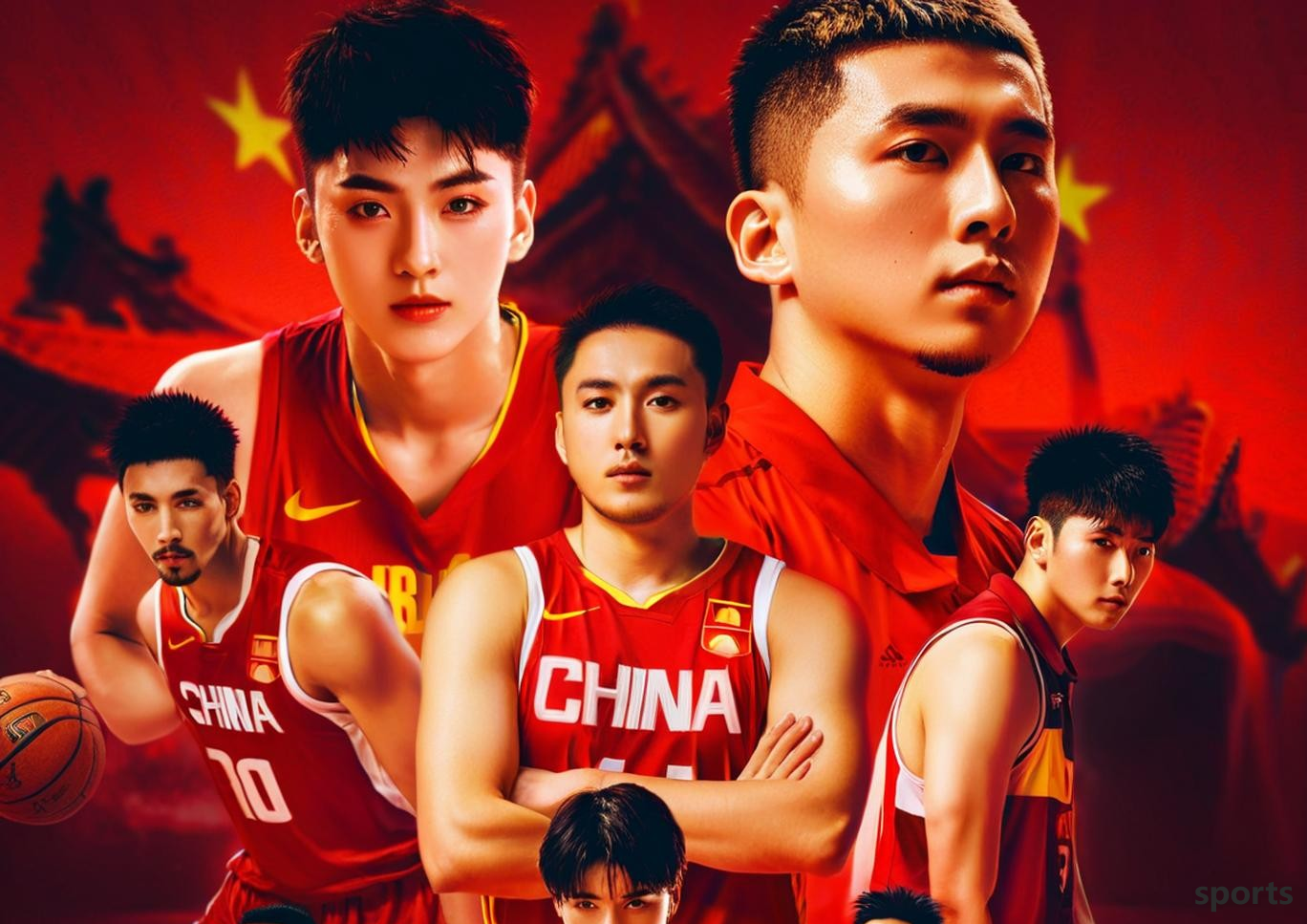AA-Sport > Basketball > The "wave of naturalization" of the Chinese men s basketball team is approaching. Will local players "take the side"?
The "wave of naturalization" of the Chinese men s basketball team is approaching. Will local players "take the side"?

Let's talk about the conclusion first: No. In the notice on naturalized players, the Basketball Association clearly put forward the four principles of "cultural identity, blood ties first, total control, ability priority". Please note, what do the four words "total control" here refer to? There is no doubt that it is to prevent the proliferation of naturalization and replace local players in an all-round way.
But one thing is certain, naturalization is already on the verge of the string. In the future, Chinese basketball will likely make great strides towards the "international column", causing fundamental changes in the basketball market, talent structure, and training paths over the past few decades.
The current time node is actually a milestone.
Please note that the CBA in the 2025-2026 season will be completely different from before.
1. Fundamental - The structure of the main frame of local players has not changed.
There is no need to worry about the stadium being occupied by naturalized players. Whether at the club level or the national team, the position of local players taking up the main body will not change.
For example, a banquet may have several more good dishes, but the "staple food" is still rice and steamed buns.
The Basketball Association will not be a hand-off manager. On the issues of how foreign players and naturalized players are used, how to follow up on league policies, there will definitely be corresponding policies that will not let the "naturalization wave" enter a disorderly state. You can rest assured.
Under any circumstances, local players are the basics of various clubs and national teams, and will never be "idle and have nothing to do". The biggest change is that the competition may be more intense in the future, the requirements for players may be higher, and the market will be less and less.
Worrying that "the national team becomes a naturalized team" is unnecessary.

2. Hidden worries - "The people retreat and the country advances", and the gap between the rich and the poor is widening.
The Basketball Association's main tone for this regression is to "delegate power" so that each club can do it themselves, and the superiors will no longer spend money and effort.
Leave things to the market. The result of
obviously depends on whether you have financial strength.
For the current situation of the clubs in the league, it is a bit embarrassing, because the rich and poor are inherently uneven, and everyone has different financial resources, so the intensity of naturalization is naturally different. In a word - see if you are willing to spend money.
Generally speaking, national clubs take advantage of the situation, and several large state-owned enterprises are not short of money. As for private enterprises, some of them have good financial conditions, but overall, most of them are probably "stingy" type.
To be honest, this situation will bring certain hidden worries.
The gap between the rich and the poor has widened, and some small market teams will gradually become eliminated, which is not conducive to increasing investors' enthusiasm.
If in the long run, these "pain" are impossible. In the future, the market will be booming and enter a virtuous cycle. Everyone has money to make money. This problem will naturally be solved, but how long will it take?
3. Change - Chinese basketball will completely change from now on.
This is not an alarmist statement. Just like when we introduced foreign players, there are two concepts for the league with foreign players and no foreign players.
Naturalized players will not only change the strength of a certain club team, but will become an "industry" that affects many parties and have a structural impact on the league. Focusing on the "industry" of naturalized players, a series of industrial chains formed by introduction, use, output, rotation and other aspects will soon be formed. The operations of each club in the league are more complex than before.
And, it has an irreversible impact on youth training, echelons, and communication. How big the impact will be depends on the development of the situation.
Naturalization is a wave, and the impact is not just the league and the league. It is likely to be the entire basketball industry and structural framework.
The days of Chinese basketball changing dynasty have quietly begun.
From the perspective of the league, it is likely to promote market diversification, multi-level league interactions will intensify, naturalized players will accelerate the exchange of some local players, and indirectly improve the level of the second-level league. For example, NBL, the number and frequency of receiving CBA players will increase, which is obviously beneficial to one's own development and even compete with the CBA market.
From the audience's perspective, the complexity and diversity of the market will lead to more choices. The "basketball" meal is becoming more and more abundant, which is a good thing.
Naturalization is already unstoppable, and this is the international situation. It brings a series of impacts that will cause disruptive changes in the former basketball market and structure. Openness is a trend and an inevitable trend and irreversible.
Li Kaier is just a small overture in this "wave of naturalization". The real big drama is about to appear.

Related Posts
Trail Blazers official: Team will travel to Salt Lake City
BasketballReported by the Trail Blazers official account, from the perspective of Torn City. PDX✈SLC RipCityviews.PDX✈SLC Mini-game recommendations: Ball vs Blocks...
morePelicans official announcement! Looney has sprained his left knee ligament and will be sidelined for at least 2-3 weeks. The old player once said that the Pelicans were cursed.
BasketballOn October 16, the Pelicans suffered another injury. The team's new aid Looney was determined to be injured for at least 2-3 weeks. The New Orleans Pelicans officially announced that Kevin Looney was diagnosed with a sprain of the proximal tibio...
moreIf Shepard is traded after 20 games, Udoka will definitely choose between Whitehead and Holiday.
BasketballThe Rockets are basically certain that Shepard will enter the starting lineup and may give him 20 games. If that doesn't work, the Rockets will make a decisive trade. Udoka should prefer White or Jrue Holiday. White and Jrue Holiday won a champi...
more
Hot Posts
- Warriors: Petition Seth Curry to become the number one jersey sales in the season
- Congratulations to the Lakers! The forward line is traded, and it would be perfect to trade Reeves for Avdia
- The curtain of the NBA in the new season is about to kick off, and the heroes compete for the destiny
- Lakers General Manager Robert Pelinka was interviewed and responded positively to various speculations surrounding LeBron James recently
- US media commented on the strongest player every year in the 21st century: James dominated in 8 years, O Pang Kobe Jokic dominated in three consecutive games
- Only 505 points away, this 51-year NBA record will be broken by Westbrook in the new season
- The Lakers are really ungrateful! If James hadn t joined, the Lakers Dynasty would have collapsed long ago
- HG08 2025 NBA Finals: 4 Things to Watch in Game 6 of the Finals
- Young Hero! Jaylenway scored 40+ in the finals in the first three years of his career. In 2006, Wade s first player
- G1 in the Eastern Conference Finals made a shocking comeback! Brunson scored 40+, but he said this when interviewing him after the game!
Recent Posts
-
Cavaliers are on the verge of being eliminated 1-3! G4 has a record of shame, Mitchell s accidental injury is worse than losing
-
2 games hit 91 points! Overtaking James, Mitchell topped the Cavaliers, and the Eastern Conference pattern has completely changed
-
Congratulations! The Lakers lost the draft at the age of 23: 25 points in two games, and another Reeves is released?
-
Losing to the Greek European Championships group, has the Spanish men s basketball team declined?
-
17 years later, the international women s volleyball competition will return to Beijing
-
Halliburton confirms reimbursement for the new season! The president confirms that he will not play and cannot joke about his health
-
The Ringer reviews the top 100 players in the 24-25 season 21-50: Butler 24 Harden 30 Shen Jing 36
-
Discussion on the new season! Who will the championship be under the list of the Big Three?
-
The game is worse than the other! How could the former Rockets forward pitcher play like this in the Asian Cup?
-
Recent information of former maximum salary players: sharply reduced from annual salary of 47 million to playing time